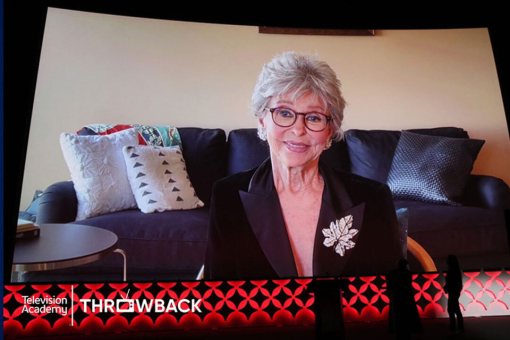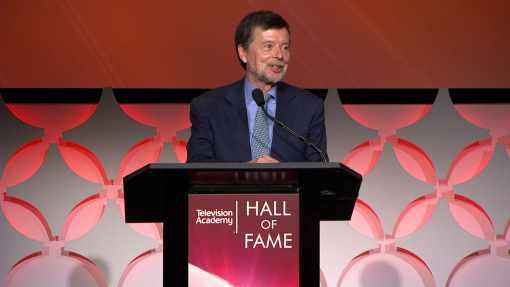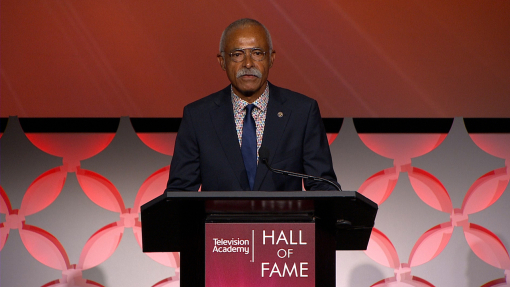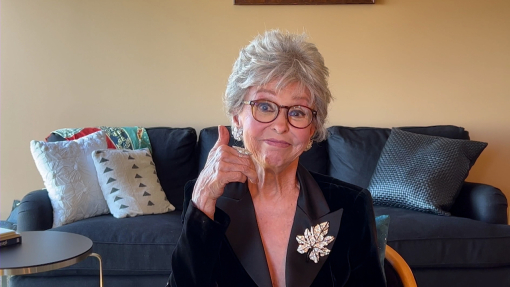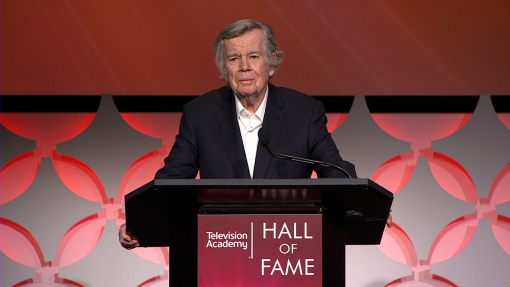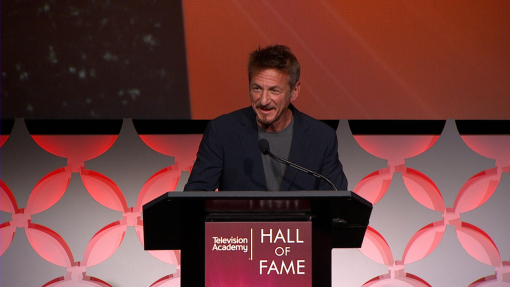“Desi revolutionized television,” Lucille Ball said of her husband, I Love Lucy costar and president of their Desilu production company.
“At first, everybody thought it was me who was calling the shots and making the decisions,” she said, “but it was when we started doing other series besides our own and I never showed up at a meeting that they believed that Desi was the brains.”
Robert Stack, who from 1959 to 1963 starred in The Untouchables, one of the many programs produced by Desilu, says, “Desi Arnaz was a very courageous man — an innovator. When he began his career in television, it was regarded as a second-rate medium. He made it first class by putting motion-picture quality on television. During his lifetime he never got full credit for doing that. When he first asked me to do The Untouchables, I told him that my answer depended upon how good it was going to be. I said, ‘If you, as a fellow performer — not as a producer — can tell me you are going to make the best show you know how to make, I will believe you.’ He said, ‘Baby, we’re going to make the best damned show on television,’ and he did, by using motion-picture actors and motion-picture technology.”
Desi Arnaz, Jr. says that his father’s talents as a singer, songwriter, dancer, musician, bandleader, actor and comedian were undeniable, but he had more of a feel for the business side of television than he did for performing.
“His expertise and diversity were more than just the image of ‘Desi Arnaz,’” his son says. “He produced everything from Our Miss Brooks and December Bride to The Untouchables. When he and my mother bought RKO studios [for their production company Desilu] in 1957, he became the head of one of the world’s largest television-and-motion-picture production facilities. But his biggest impact probably came from devising the way in which I Love Lucy was made. He thought of using three motion-picture cameras at the same time in front of a studio audience, and now virtually every situation comedy is made that way. He made television reruns possible.”
Desiderio Alberto Arnaz y de Acha III was born in Santiago de Cuba on March 2, 1917, to one of that country's most politically and financially prominent families. In 1933, a political revolution forced Arnaz to flee to Florida with his family.
Madelyn Pugh, who cowrote I Love Lucy, says, “Desi was a very instinctive person. He just seemed to pick things up as he went along. He came from a rather well-to-do family, but they lost everything and arrived in Florida stone-broke. So, he started over. Desi was never afraid to take chances. He used to say that he could always go back to cleaning canary cages (his first job in Miami when he was finishing high school). He started out with nothing and ended up running the world’s biggest film studio. That was really rather remarkable.”
Within a year of settling in Miami, Arnaz was singing at the posh Roney-Plaza Hotel and performing in New York City for Xavier Cugat’s big Latin band.
Recalling his audition for Cugat in his 1976 autobiography, A Book, Arnaz wrote, “My Cuban blood was flowing. My hips were revolving. I would have made Elvis Presley look as if he were standing still.”
By 1938, Arnaz’ conga-line nightclub act attracted a tony Manhattan following, and he became a highly visible man-about-town.
In 1939, Arnaz’s energetic style won him a featured role in the Richard Rodgers and Lorenz Hart Broadway musical Too Many Girls, and his torrid act-one finale on the conga drum created such a sensation he was asked to repeat it in Hollywood for the RKO movie version of the musical.
During his first day at the studio, Arnaz met the film’s star, Lucille Ball, and asked her if she knew how to rumba. Romance followed, and on November 30, 1940, a tempestuous 20-year marriage began.
“He loved my mother his whole life,” says his daughter, Lucie Arnaz. “They could not find a way to live together, but they always loved one another, always, always.”
Arnaz completed two other RKO pictures before World War II began, and, while performing on a Hollywood stage in Ken Murray’s Blackouts, impressed Louis B. Mayer, who signed him to appear in MGM’s early war epic, Bataan.
While serving in the United States Army during World War II, Arnaz became an American citizen. In the early 1970s, he was appointed roving ambassador to Latin America by President Nixon.
“He was so proud to be an American citizen,” says Lucie Arnaz, “and he was extraordinarily patriotic. He had amazing political connections. My mother won the Emmys, but my father had letters from Presidents. His father was mayor of Santiago and a member of the Cuban House of Representatives, so he understood politicians and wasn’t intimidated by people in power. He talked to them the way he liked his fans to talk to him. He was amigo and ‘pardner.’”
After the war, Arnaz became musical director for Bob Hope’s radio program and continued to tour the country with his band. In 1949, Arnaz starred in the CBS radio program, Tropical Trip.
One year later, Lucille Ball insisted that CBS costar Arnaz as her husband on her projected new television series, but CBS chief William S. Paley balked. The duo subsequently convinced Paley that Arnaz would be believable to the American public as Ball's husband by pointing out that they had been married for 10 years and by performing a vaudeville act on a highly popular nationwide tour.
“My mother wanted a career in television only to be with my father,” Lucie Arnaz says. She thought it would keep him from traveling with his band and give him something credible to do. What he did for Latin Americans was tremendous. He was a very eloquent, literate and educated man who spoke with an accent, like Henry Kissinger. Ricky Ricardo was the first Latin to be portrayed on a network show in a normal family. He was a working person with a nice, ordinary apartment and looked like a respectable human being.”
I Love Lucy quickly became television’s number-one program and Desilu — the production company Arnaz and Ball had formed in 1950 — produced numerous other programs. Among those programs were Westinghouse Desilu Playhouse (which aired the pilot for The Twilight Zone), Whirlybirds and Our Miss Brooks.
“He loved to negotiate and communicate with people,” remembers Lucie Arnaz. “People were more open to him because he was also on television. It was good for him that he was also on television. It was good for him that he was that lunatic Cuban in people’s living rooms every Monday night because he would call them up the next day and negotiate as head of Desilu.”
In 1962, Arnaz sold his half interest in Desilu to Ball and retired to his horse ranch near Del Mar and his home in Las Cruces, Mexico. Several years later, he formed Desi Arnaz Productions and in 1967 produced The Mothers-in-Law, which he frequently appeared in as a guest star.
Lucie Arnaz says, “He was never afraid to ask questions. When someone told him he couldn’t do something, he would say to them, ‘Well, could you ’splain to me how I could do it if I had all the money and time in the world? What if I did this? What if I did that?’
“And he would narrow the problem down to how he could do something, as opposed to why he couldn’t. Then a little light — like a possibility — would appear at the end of the tunnel, and he would say, ‘Let me try,’ and a new adventure would pop up for him. He had such a joy about him.”
This tribute originally appeared in the Television Academy Hall of Fame program celebrating Desi Arnaz's induction in 1991.

